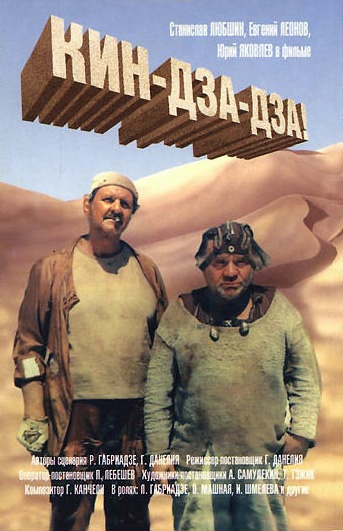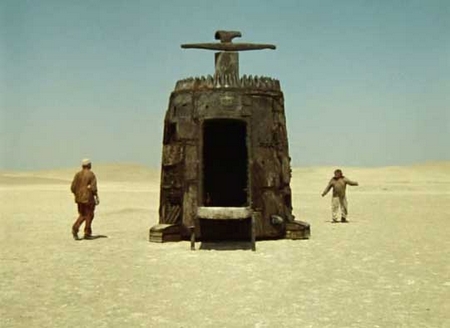Anne Applebaum talks about the gulag criminals’ slang, saying it was “so distinct from ordinary Russian that it almost qualifies as a separate language.”
I wonder if an echo of that jargon is in the movie Dzhentlmeny udachi (Gentlemen of Fortune, 1971). Applebaum’s book emphasises the 30s, 40s, and early 50s. The gulags were definitely gentler by 1971. But I wonder how much of that movie had gulag connotations for Russian viewers.
In Gentlemen of Fortune, the main character (played by Yevgeny Leonov) is a kindhearted kindergarten teacher who is recruited to impersonate a murderous criminal to whom he bears a physical resemblance. It’s so he can help the police find out where the stolen gold was hidden.
It’s a comedy, and it can be seen on YouTube, with English subtitles. Although he impersonates the tough guy complete with tattoos and scars, he can’t help but try to teach his criminal gang some good manners and getting them to straighten up their lives.
Like at one point in the movie (segment 4 of 9) he breaks up a fight and then tells the guys they shouldn’t use jargon. Is he referring to this same kind of talk that Anne Applebaum is referring to? I don’t know enough Russian to recognize it myself.
But there are other gulag references. At one point in one of the later segments, he has the gang playing word games on New Year’s Eve. One of them says Vorkuta, and he asks why Vorkuta. He had served a term there. Even before reading Applebaum’s book, I recognized Vorkuta as the far-north site of one of the nastier gulags.
As I’ve been thinking about it, I’ve come to realize that there are quite a few gulag references in the Russian movies I’ve watched. One of them I’ll save for later, but there is a scene in another comedy, Brilliantovaya Ruka (The Diamond Arm) in which the bad guys are at a restaurant table, and a passing stranger at the table with them says they ought to come visit him in Siberia. He meant it innocently, but they almost shudder at the idea, as criminals would have good reason to do.



